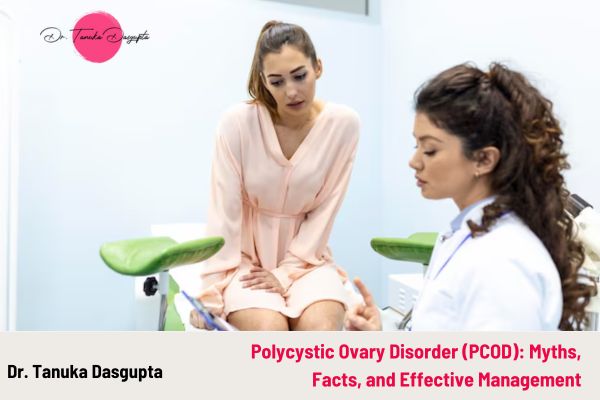Polycystic Ovary Disorder (PCOD): Myths, Facts, and Effective Management with Dr. Tanuka Dasgupta
Polycystic Ovary Disorder (PCOD) is one of the most common hormonal disorders affecting women of reproductive age. Despite its prevalence, misconceptions and myths about PCOD continue to create confusion and fear. Dr. Tanuka Dasgupta, an expert gynecologist specializing in women’s health, addresses these myths, shares key facts, and offers insights into effective management strategies for PCOD.
Understanding PCOD
Polycystic Ovary Disorder (PCOD) occurs when a woman’s ovaries produce excessive androgens (male hormones), leading to irregular menstrual cycles, ovarian cysts, weight gain, acne, and fertility issues. While PCOD cannot be entirely cured, it can be effectively managed with proper medical guidance and lifestyle changes.
Myths vs. Facts About PCOD
Myth 1: PCOD only affects overweight women.
Fact: PCOD can affect women of all body types. While obesity can worsen symptoms, lean women can also have PCOD.
Myth 2: PCOD always causes infertility.
Fact: While PCOD can affect fertility, it does not make pregnancy impossible. With proper medical intervention and lifestyle changes, many women with PCOD conceive successfully.
Myth 3: Irregular periods are the only symptom of PCOD.
Fact: PCOD symptoms vary and may include acne, hair thinning, excessive facial hair, mood swings, and insulin resistance.
Myth 4: Birth control pills cure PCOD.
Fact: Birth control pills can help manage symptoms like irregular periods but do not cure PCOD.
The Importance of Early Diagnosis and Management
Early diagnosis of PCOD can prevent long-term complications such as type 2 diabetes, cardiovascular diseases, and endometrial cancer.
Common Symptoms to Watch For:
- Irregular or missed periods
- Excessive hair growth (hirsutism)
- Severe acne
- Weight gain, especially around the abdomen
- Hair thinning or hair loss
Diagnostic Tools for PCOD:
- Hormone level blood tests
- Pelvic ultrasound
- Medical history and physical examination
Effective Management Strategies for PCOD
Dr. Tanuka Dasgupta emphasizes a comprehensive approach to managing PCOD, which includes:
1. Healthy Lifestyle Changes:
- Balanced diet rich in whole grains, lean protein, and vegetables
- Regular physical activity
- Adequate sleep and stress management
2. Medications:
- Birth control pills for menstrual regulation
- Metformin for insulin resistance
- Anti-androgen medications for managing hair growth and acne
3. Regular Monitoring:
Routine check-ups to monitor hormone levels and metabolic health
4. Emotional Well-Being:
Managing PCOD can be emotionally challenging. Support from healthcare professionals, counselors, or support groups can be invaluable.
Debunking the Stigma Around PCOD
Dr. Tanuka Dasgupta stresses the importance of breaking the stigma surrounding PCOD. Open conversations and awareness can empower women to seek timely medical help and adopt healthier lifestyles.
Conclusion
Polycystic Ovary Disorder is a manageable condition with the right care and guidance. Early diagnosis, informed lifestyle choices, and ongoing medical support can significantly improve quality of life for women with PCOD.


